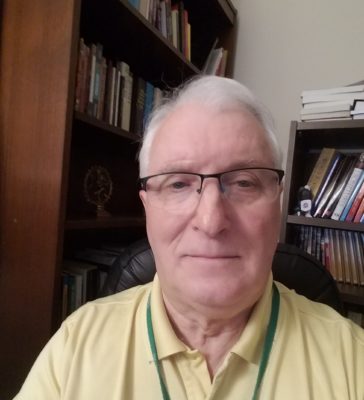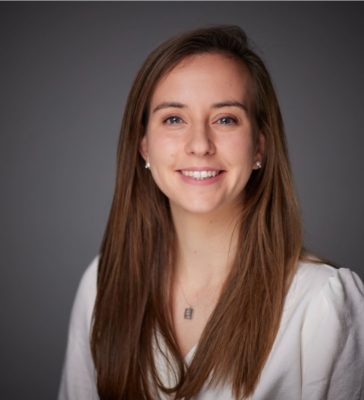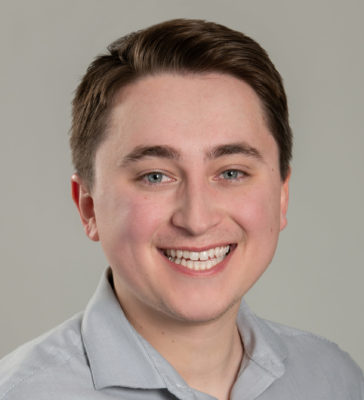
Herbert Burnett (Bert) Strange
Current Employer/Organisation Name
Greenville Technical College
What have you been doing since leaving Exeter, and what are you doing now?
It’s been 40 years, so this is literally a long story. After returning to the States, I taught and was chaplain at a private secondary school, and then spent 20 years as a U. S. Army chaplain, retiring in 2002. I served in a variety of roles including unit chaplain, headquarters staff officer, resource manager, and (twice) Army Service School instructor. I was posted to Germany and Korea as well as several stateside assignments. I also was able to “scratch my academic itch” by teaching as an adjunct instructor for two universities that at extension campuses on the posts where I served. Since retiring, I have taught as an adjunct at my undergraduate alma mater, Furman University, and at Greenville Tech, In June 2018, having had enough of retirement, I became the full-time religion instructor at Greenville Tech. As the saying goes, “Find a job that you would do for free, and get someone to pay you for it.” I have also had a busy life away from work as a member of various community organizations, including the Rotary Club of Greenville (of which I was President, 2011-2012) and Greenville’s First Baptist Church.(as deacon, committee member and chair, and Sunday School teacher).
Why did you choose this career? And what do you enjoy most about your work?
My career path has been interesting, to say the least. I started on a military career which was interrupted by the call to ministry and attending seminary. It was in seminary that the idea of earning a PhD and teaching began, and so found myself at Exeter. Then, as noted above, my ministry, military and academic careers coexisted for a couple of decades. It is probably fair to say that i didn’t really choose my careers in the usual sense, but they chose me, each for its own appropriate time. The thing I enjoy most is simply interacting with students in the classroom, and watching them grasp concepts that may not have been “on their radar” before. It’s hard to match watching those “Aha” moments take place.
Please tell us if you were a member of any societies, groups or sports clubs?
I was involved in the Augustine Society through the Department of Theology.
What did you enjoy most about your programme and what was the biggest highlight?
I’m not sure I could honestly say that “living in the stacks” doing research was always enjoyable, but the opportunity to associate with the other members of the department — faculty, staff and students — provided enough joy to see me through. The biggest highlight was obviously having Professor Porter tell me that I had passed the viva, and could now have the title of “Doctor” in front of my name.
What did you enjoy most about studying here?
Because my family (wife and two — ultimately three — children) with me, the Exeter experience was more than just studying. Living in the Exwick neighbourhood, making friends in the community, attending South Street Baptist Church, having the opportunity to travel all made our three years some of the happiest of our lives.
Why did you choose to study at Exeter?
I knew I wanted to study in England, since the doctoral process was much more sensible than at American universities. My mentor in seminary had been a DPhil student at Oxford supervised by J. R. Porter at Oriel College. Since he had become the Professor of Theology at Exeter, having the chance to work with Prof. Porter was the deciding factor.
What skills and experiences have been most useful for your career?
Learning how to do research at the doctoral level was intense, but worthwhile. Remembering to keep the end result in mind when things seemed not always to be going as smoothly as I had hoped was an invaluable lesson. Above all, enjoy the experience. Life is too short to be doing something that really does not give you pleasure.
What advice would you give to a current student who wishes to pursue your career?
Be prepared to work hard to gain the appropriate credentials. Remember that, just because you have gained those coveted degrees, your path may still be a circuitous one. Doing other things while you wait is not wasted time, but gives you valuable experiences you can apply when the opportunity arises.
What are your plans for the future?
Since I am in my post-retirement full-time job, I plan to continue to teach as long as I am able and as long as it remains fun.

